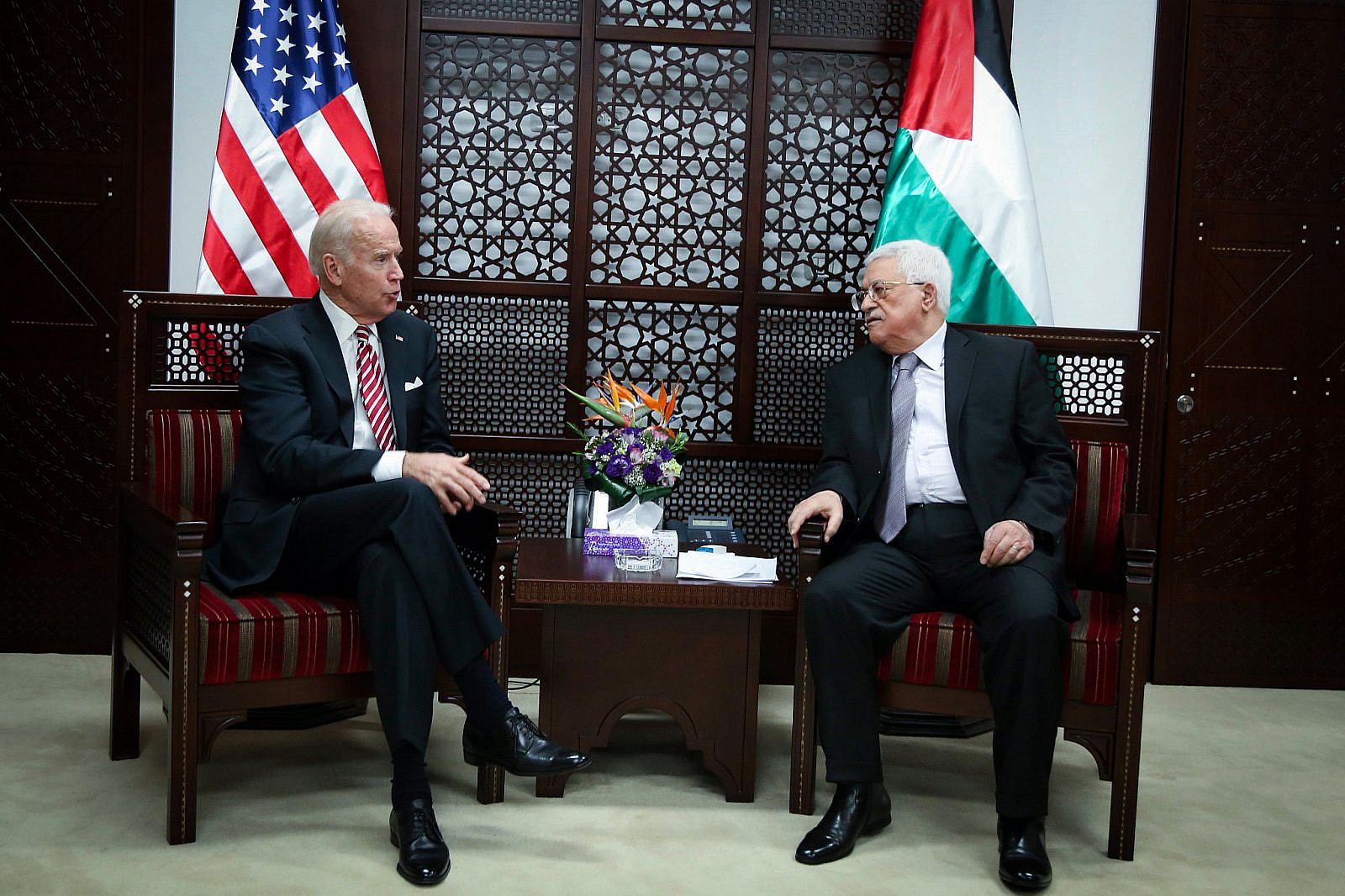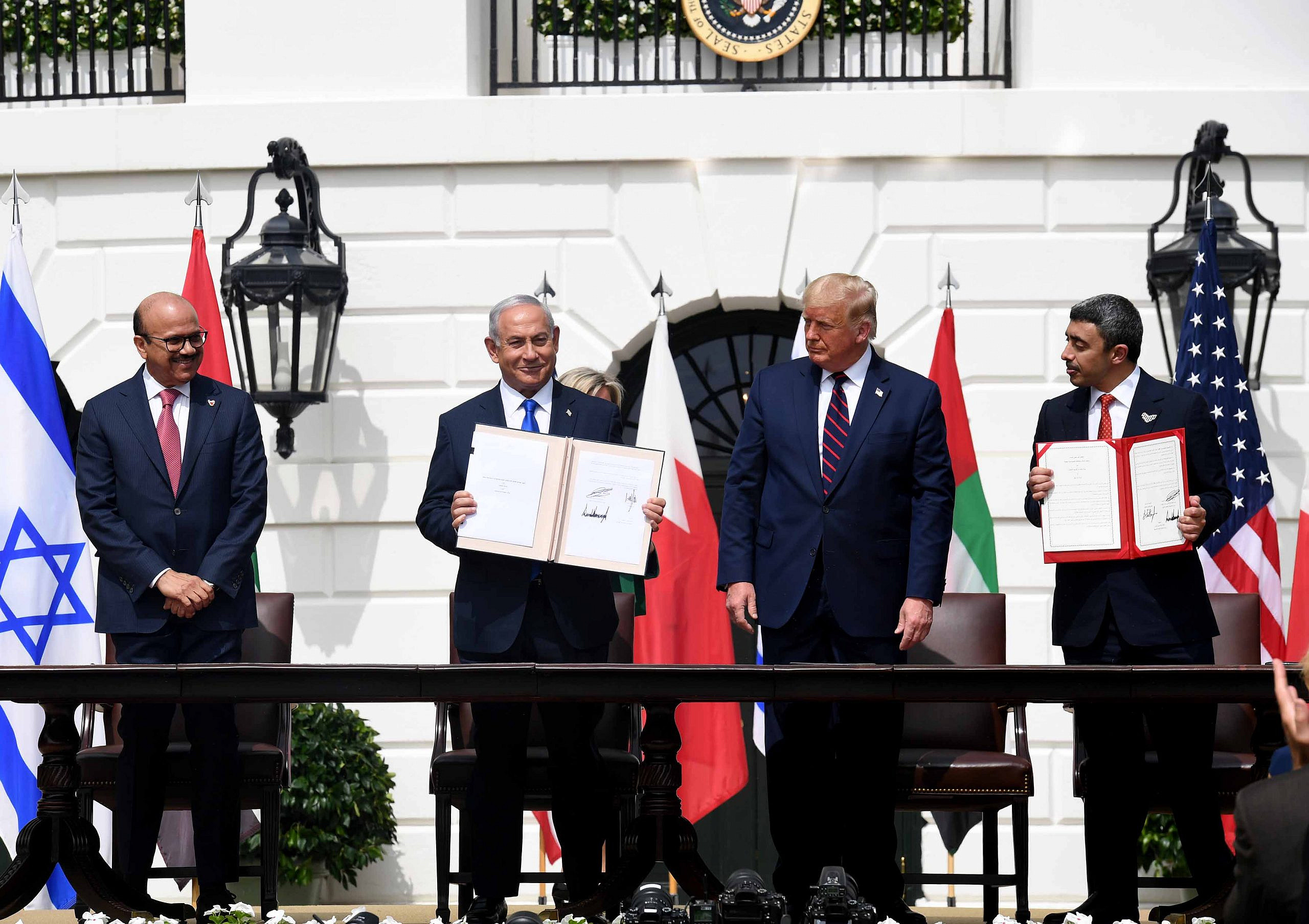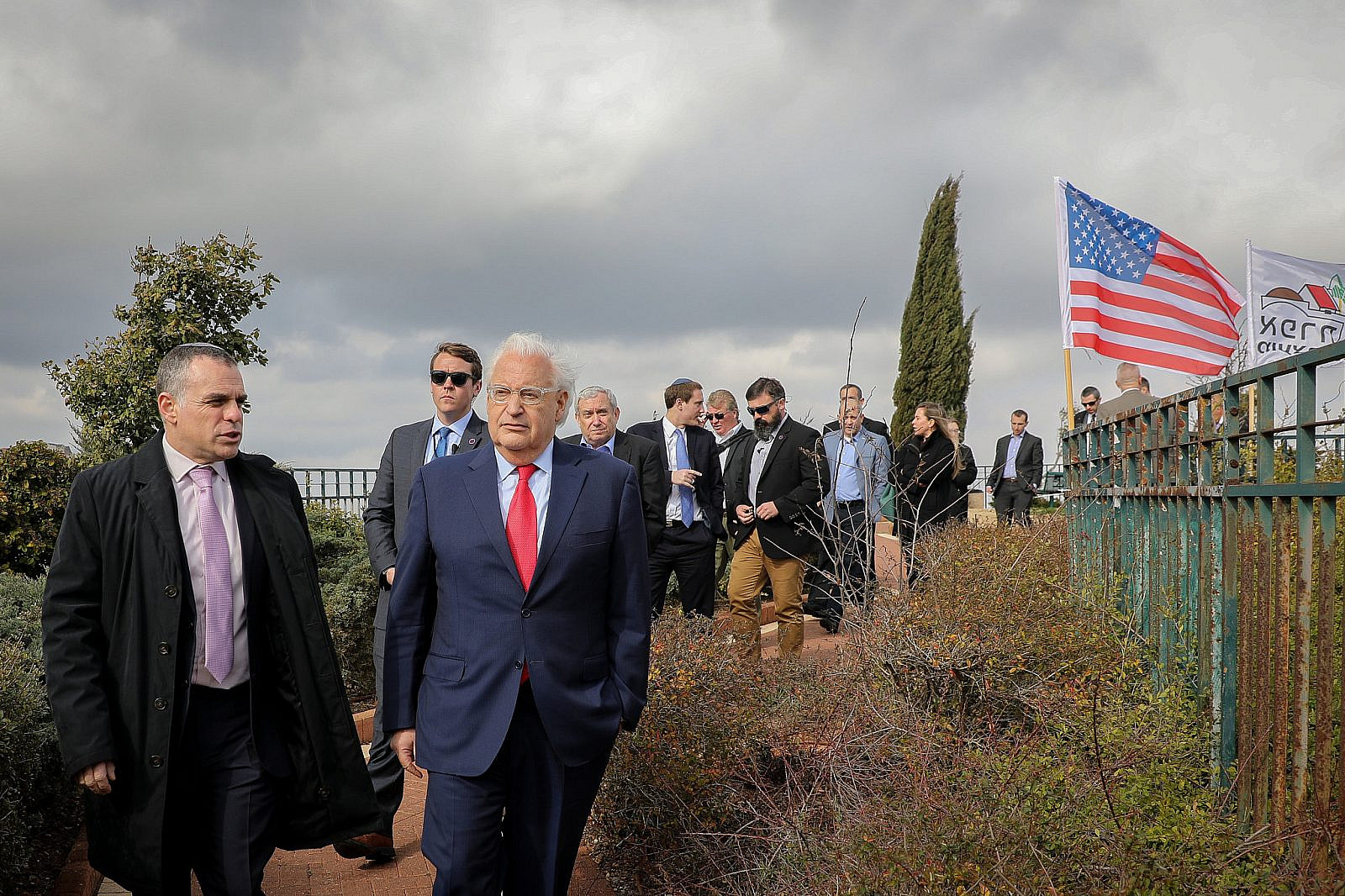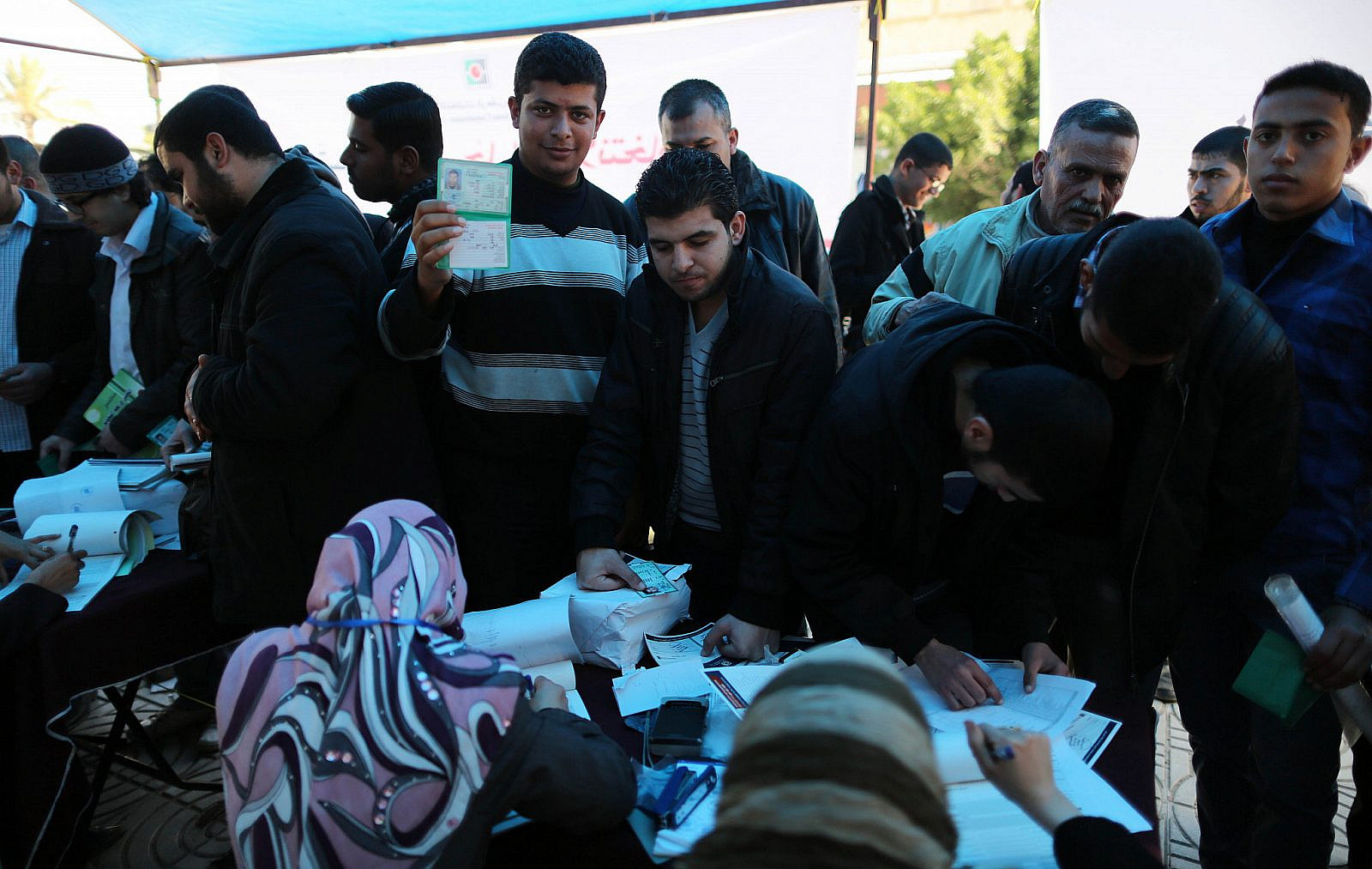The Middle East is leaving Palestinians behind. Will it be different with Biden?
With no strategy to counter Arab states' alignment with Israel, it is unclear how much a change in the White House will benefit Palestinians.
 |
By Robert Swift October 29, 2020
In the time since the Palestinian Authority disengaged from the Trump administration in protest of the so-called Deal of the Century, the diplomatic landscape in which Palestinians live has shifted immensely. The United Arab Emirates, Bahrain, and now Sudan have moved to normalize relations with Israel, facilitated by the United States. If rumors in the press are correct, other Arab states, including Saudi Arabia, may be moving to adopt similar positions.
Beyond labelling the Arab states as “betrayers of the Palestinian cause” and a few violent outbursts from militias in Gaza, Palestinian leaders have yet to show any action or policy response that meets the gravity of the changes entailed by the deals. This static position, according to some analysts, is due in part to the PA presupposing that Trump will not remain in the White House after next week’s U.S. election; and that his contender, former Vice President Joe Biden, will treat the Palestinians more favorably.
If Biden wins, as most polling data currently suggests, then Palestinian President Mahmoud Abbas’s disengagement from the United States may prove to have been well-calculated. Yet holding out for a Biden victory may also be disappointing: not only has he been a longtime ally of Israel in Washington, but his presidency may do little to alter the geopolitical quandary the Palestinians find themselves in.
For years, Palestinian leaders have allowed themselves to become marginalized by regional developments, says Tareq Baconi, a senior analyst with the International Crisis Group. The normalization deals are an iteration of this pattern: although Arab leaders have lauded their diplomatic breakthrough as a way to improve the circumstances of Palestinians, the claim holds very little weight among Palestinians themselves. And while Israel’s plans to annex large parts of the West Bank appear to be on hold, in reality it still controls the occupied territory and has even announced further settlement expansion, with no word of opposition from its new Arab allies.
 |
This “betrayal” should hardly come as a surprise to either Fatah or Hamas, the rival factions at the helm of Palestinians’ divided leadership. Historically, Arab leaders have used resistance to Israel as a brand to justify their dictatorships and channel discontent on the street, explains Baconi. Yet, he notes, there was always rhetorical support to the idea of an Arab debt to the Palestinians that grew out of the failures of the 1948 war. “This performance is over — the Arab solidarity is no longer there as far as these regimes are concerned,” Baconi says.
A substantive difference?
While the race for the White House will undoubtedly affect the course of these regional realignments, analysts are divided over how much a change in administration will actually benefit the Palestinians. Though their styles might not be the same, the difference in policy substance between Trump and Biden is not so great as far as Palestinians are concerned, argues Nadia Hijab, president of the Palestinian think tank Al-Shabaka. On the one hand, she says, Trump could fast track and openly endorse Israeli annexation if he wins another term; on the other, a future President Biden would likely make only a few critical statements, but do nothing to reverse it.
For Hijab, dialogue with and recognition from the United States are fool’s goals that Palestinian leaders have sought time and again, despite their repeated failures to bring tangible results. Their approach is based on the belief that “if you have a seat at the table, it will solve your problem,” but in reality what matters “is the power that you’re bringing to the table that forces people to pay attention to you,” she explains. Without a solid strategy to make Israelis listen to their demands, Palestinians will continue to be ignored and marginalized; hinging their hopes on the White House, whether under Biden or Trump, is unlikely to erase that need, she adds.
For other analysts, this argument may be understating the extent to which Trump has upended U.S. policy on Israel-Palestine. Since 2017, his administration has adopted a swathe of right-wing Israeli demands that his predecessors demurred over, including relocating the U.S. embassy to Jerusalem and recognizing Israel’s annexation of the occupied Syrian Golan Heights. On Wednesday, U.S. Ambassador to Israel David Friedman — an open advocate of Israel’s settler movement — signed an agreement with Prime Minister Benjamin Netanyahu to extend their scientific cooperation to institutions across the Green Line. “We are righting an old wrong,” Friedman declared.
The full-throated support for Netanyahu’s policies would likely be replaced by a more skeptical yet still supportive tone under Biden, says Jon Alterman from the Center for Strategic and International Studies. “A Biden administration would have some sympathy toward Palestinians and much sympathy toward Israel. But what it wouldn’t have is a U.S. ambassador who considers himself part of the settlement camp,” he says.
 |
This scenario, of course, assumes that Trump will not prove pollsters wrong twice and retain the White House. If it was difficult for Palestinian leaders to stay afloat under one Trump term, a second term may prove untenable. Palestinians now fear that their cause could be marginalized to a point that would take decades to recover from, forgotten while the Middle East transforms around them.
If Trump is re-elected, the PA would likely have to reverse its policy and return to some form of dialogue with the White House, a European Union diplomat, speaking anonymously, tells +972. “They see the way things are moving; the ground is slipping away.”
Such a U-turn could be made more palatable by some form of gesture, financial or otherwise, by Trump to the PA, the diplomat notes. The Trump administration has shown it can rapidly alter its stance toward foreign governments — as it did with the North Korean regime in 2018. So, while Trump is unlikely to change his overall position toward the Palestinian issue, his manner of outreach could enable the PA to re-engage.
To act or be acted upon
Regardless of who enters the White House, though, there is still no active or coherent strategy by Palestinians to advance their cause. For years, Palestinian leaders have largely reacted to events (often futilely) rather than shape them, and they risk continuing to do so for another four years under Trump. This prospect could worsen the political and socio-economic situation for millions of Palestinians living under occupation and as refugees in the region.
In a sign of potential shifts, Fatah and Hamas announced in September that they have reached a reconciliation agreement and plan to hold legislative, presidential, and PLO elections in the near future. But this news has largely been viewed with skepticism by observers: such pledges have been repeatedly made — and broken — in the 13 years since the factions split following a violent civil conflict.
Moreover, analysts warn, national elections are not in themselves a strategy. If a vote were to take place, it is unlikely that Palestinian residents of East Jerusalem, Palestinian citizens of Israel, or Palestinian refugees in exile — making up the majority of the Palestinian people — would be able to participate. Significantly, Israeli officials themselves have demonstrated that they do not view Palestinian reconciliation as in their strategic interests; Israeli authorities have routinely contributed to obstructing such moves, including by banning or arresting Hamas political representatives and vehemently opposing any PA activity in East Jerusalem.
 |
In the meantime, Hijab suggests, one strategy for moving forward is to expand the Palestinians’ leverage vis-à-vis Israel. While their leaders have limited options available to them, a potential window is the rise of the Democratic Party’s progressive wing in the United States, which has helped to break Washington’s decades-long bipartisanship on Israel.
Young voters, including American Jews, who are increasingly conscious of Palestinian rights are altering their country’s discourse on the conflict and electing representatives to show for it, says Hijab. Catalyzing this process could help Palestinians gain some power. But, Hijab emphasizes, this does not mean banking on a Biden victory: it means shifting the position of enough Democratic voters, such that the progressive wing’s skepticism of Israel becomes the official party line.
Another route, explains Baconi, is for the Palestinian leadership to transition from a state-building mindset and return to a framework of national liberation. This means accepting that the PA, and the Oslo Accords which birthed it, have failed, and that the Middle East has moved on. Transferring power from a corrupt and obsolete PA back to the Palestine Liberation Organization, while refusing to continue acting as a subcontractor of the occupation, would be the first step in the process, says Baconi. This does not necessarily mean advocating for violence, he adds, as such tactics have not produced the results Palestinians desired, due to the asymmetry in their military contest with Israel.
Such a strategy will require an acknowledgment — by the PA as much as the international community — that the two-state solution is officially dead. “Palestinians need to concentrate on securing the best possible respect for their rights in a situation which would eventually be a one state in some shape or form,” the EU diplomat says. This view, though, is not shared by most European governments, who wield significant political and financial sway in the conflict but are sticking to their talking points on the two-state solution.
For Baconi, this debate over statehood is a distraction. What matters is not whether there are one or two states between the Mediterranean Sea and the Jordan River, but whether all people living in the region have equal human rights, he says. The current situation is that one group holds more rights than the other in a single state — a sovereign and self-defined Jewish, Israeli state. “But the PA misrepresents that reality,” Baconi says. “The PA is not a sovereign entity. It is barely a municipality.” The need to re-strategize based on that fact will not change, no matter who sits in the Oval Office in January.


No comments:
Post a Comment
Note: only a member of this blog may post a comment.